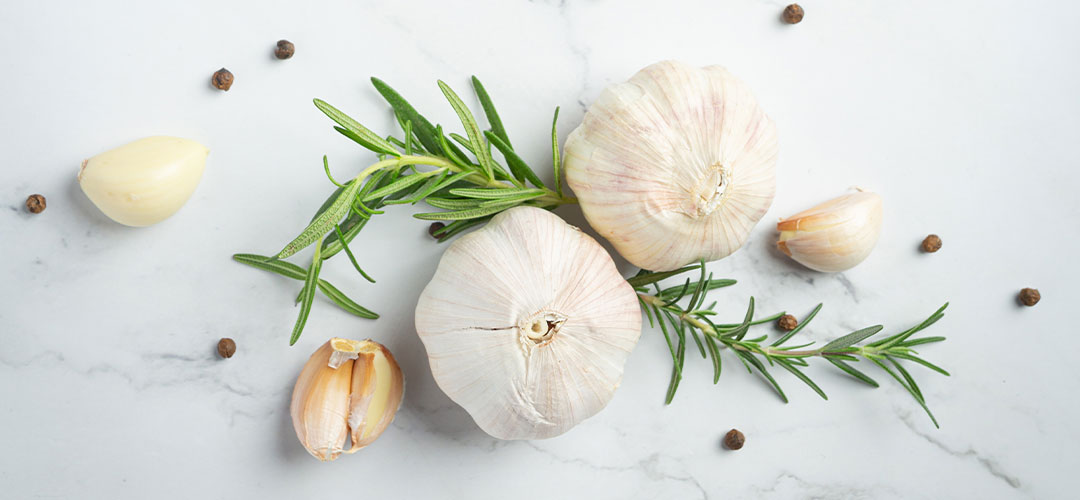In a world where over-the-counter medications are readily available, it’s easy to overlook the power of nature in treating common health issues.
Herbal remedies have been used for centuries across various cultures to alleviate ailments and promote overall well-being.
These natural solutions often come with fewer side effects and can be just as effective as their synthetic counterparts. Let’s explore some popular herbal supplements that can help treat colds, headaches, and digestive problems.
Battling Colds with Herbal Remedies
Colds are one of the most common ailments. While they are usually not severe, the symptoms can be quite uncomfortable. Here are some herbal remedies to consider:
Garlic
- Benefits: Garlic has strong antiviral and antibacterial properties that can help boost the immune system and combat cold symptoms.
- How to Use: Incorporate fresh garlic into your diet by adding it to soups, stews, and other dishes. Garlic supplements are also a great way to keep topped up.
Elderberry
- Benefits: Rich in antioxidants, elderberry has antiviral properties that can help fight off colds and flu.
- How to Use: Elderberry syrup or lozenges are popular choices. You can also find elderberry in supplement form.
Ginger
- Benefits: Ginger has anti-inflammatory and antiviral properties that can help soothe a sore throat and reduce nasal congestion.
- How to Use: Drink ginger tea for fast relief. Fresh ginger can also be added to soups and other dishes.

Natural Headache Relief
Headaches can be debilitating, affecting our ability to perform daily tasks. Instead of reaching for a painkiller, consider these herbal remedies:
Peppermint
- Benefits: The menthol in peppermint oil can help relax muscles and relieve headache symptoms, particularly tension headaches.
- How to Use: Dilute peppermint oil with a carrier oil and apply it to your temples and the back of your neck. Inhaling peppermint oil can also provide relief.
Lavender
- Benefits: Lavender oil has calming properties that can help alleviate headaches caused by stress and tension.
- How to Use: Inhale lavender oil, use it in a diffuser, or apply it topically after diluting with a carrier oil.

Supporting Digestive Health with Herbs
Digestive problems like bloating, indigestion, and constipation are common complaints. Herbal remedies can offer gentle yet effective relief:
Peppermint
- Benefits: Peppermint oil can help relax the gastrointestinal tract, reducing symptoms of IBS and indigestion.
- How to Use: Drinking peppermint tea is a lovely way to feel the benefits of this oil.
Ginger
- Benefits: Ginger can stimulate digestion and reduce nausea and bloating.
- How to Use: Ginger tea or fresh ginger in food can all be beneficial. It’s particularly helpful for motion sickness and pregnancy-related nausea.
Chamomile
- Benefits: Chamomile has anti-inflammatory and antispasmodic properties, making it excellent for soothing the digestive tract.
- How to Use: Drink chamomile tea to relieve symptoms of indigestion and to promote relaxation.
Fennel
- Benefits: Fennel seeds can help alleviate bloating, gas, and cramping.
- How to Use: Chew on fennel seeds after meals or brew fennel tea.
Tips for Using Herbal Remedies
While herbal remedies can be highly effective, it’s essential to use them correctly to ensure safety and efficacy:
- Consult a Professional: Before starting any herbal supplement, consult with a healthcare provider, especially if you are pregnant, nursing, or taking other medications.
- Quality Matters: Choose high-quality supplements from reputable sources to ensure you are getting pure and potent products.
- Start Slowly: Begin with a lower dose to see how your body reacts and gradually increase if needed.
- Be Patient: Herbal remedies may take longer to show effects compared to synthetic medications, so be patient and consistent with usage.






